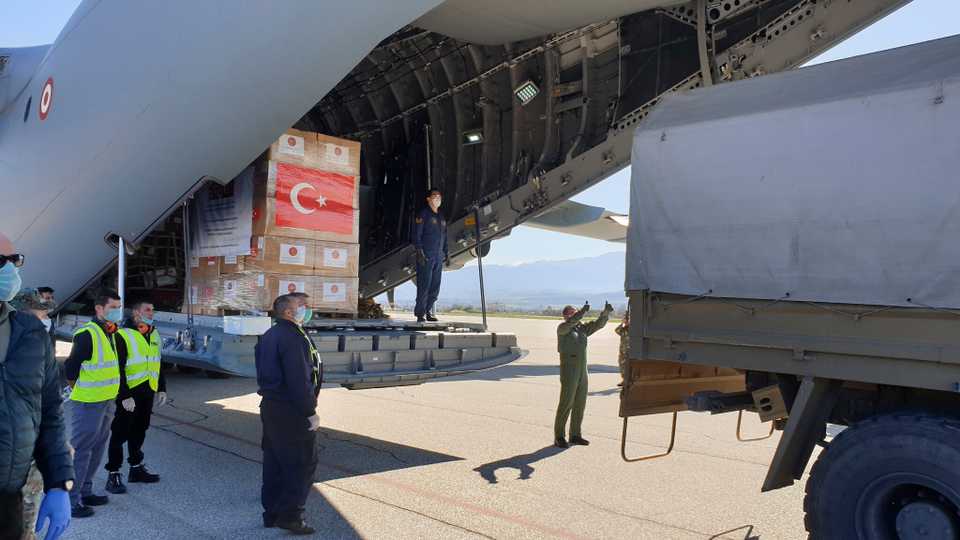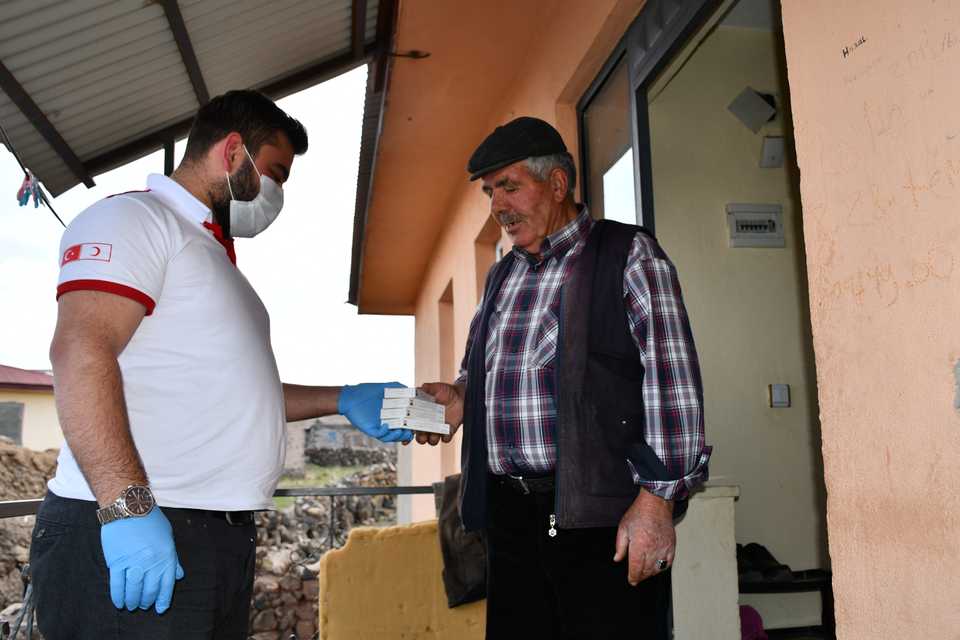While Turkey is among the top 10 countries with the highest number of Covid-19 cases, it has still been able to implement a cohesive strategy eliciting the praise of international groups like the World Health Organisation (WHO) and NATO.
Ankara has managed to keep the country’s death toll low while also continuing to deliver aid to other countries which desperately need medical supplies like face masks, gloves and other equipment.
“There’s probably no better country on the European continent better prepared to deal with natural disasters and large-scale population-based disasters,” said Dr Mike Ryan, the WHO’s CEO for Health Emergencies, referring to Turkey, during a press conference last week.
Ryan’s estimation of Turkey’s capabilities to fight with the pandemic relies on both medical realities and Ankara’s experience with large scale disaster management. The country has developed its professional strength in this regard primarily due to the several large earthquakes in the past and the influx of refugees in recent decades.

Turkey has mobilised an army of medics with 165,000 doctors, 205,000 nurses and 360,000 support personnel.
Ankara has also boosted its testing capacity, surpassing 30,000 tests per day. Among more than 200 virus-hit countries and territories, Turkey comes sixth overall with 400,000 tests, ahead of countries like France and the UK, which have a higher number of confirmed cases.
“Turkey continues its fight against coronavirus pandemic with determination,” said Turkish President Recep Tayyip Erdogan on Monday.
Unlike some other G20 nations, Turkey took the pandemic seriously from the outset, taking gradual restrictive measures to keep the spread of the virus under control.
Turkey closed public and private schools early on and placed a curfew on people over the age of 65 and under 20, to protect its young and senior citizens respectively.

“With measures taken, Turkey tops the countries which brought the outbreak under control in the fastest way,” Erdogan declared.
Implementation has been made smoother through a collaboration between the public and private sector and the ministries of health, interior and transportation.
Erdogan has also announced that in 45 days the country will build two more hospitals in Istanbul, the epicentre of the pandemic in Turkey, to better fight with the virus. He also said that in the near future the country will build two other hospitals in Istanbul and Kocaeli with 350 total beds.
On April 20, another hospital with 2,682 beds will partially open in Istanbul’s Ikitelli district, the president said.
Some Turkish experts like Mehmet Yildirim, a general surgery specialist and a professor of medicine at the Bilecik University, also suggested that some old units of newly renovated hospitals across the country could be put to use to meet increasing demand from virus patients.
“Turkey is doing a better job than some European countries like the Netherlands, Spain and France,” Yildirim told TRT World.
While most countries are racing to receive medical aid, Turkey has not been on the receiving end but on the delivering end, dispatching medical assistance to more than 34 countries including the US, the UK, Spain, Italy, Iran and some Balkan countries.
The WHO chief Tedros Adhanom Ghebreyesus credited Turkey for expanding cooperation among countries in the fight against the pandemic.
“I also appreciated the President of Turkey, President Erdogan, for the contributions he has made, starting from neighbouring countries and beyond, as has been said in medical supplies,” Tedros said.










Discussion about this post